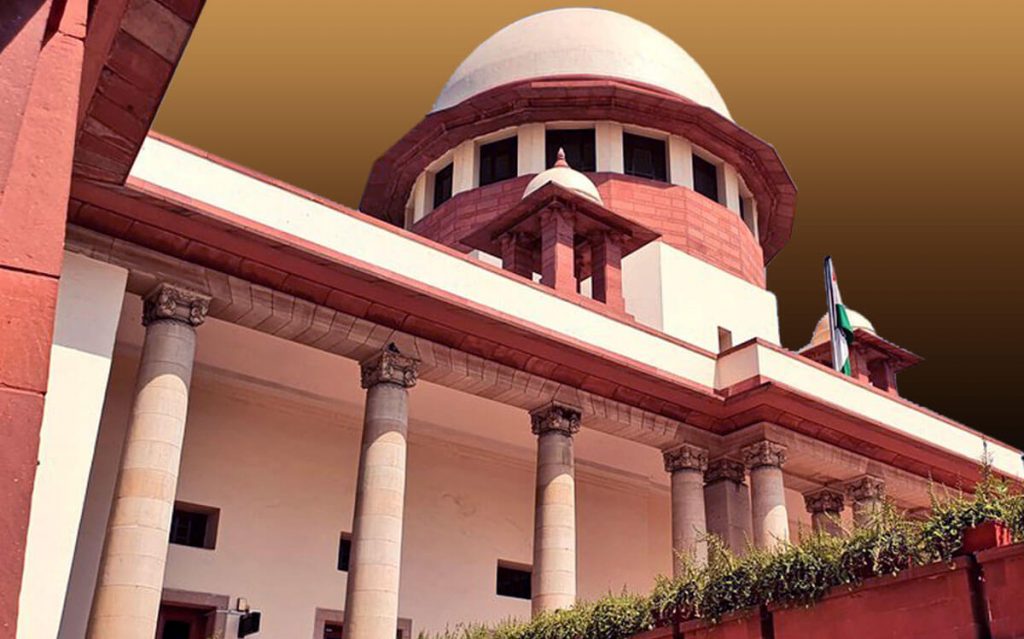The Supreme Court ruled on Friday that the Insolvency and Bankruptcy Code (IBC) will take precede over the Customs Act, directing the customs authorities not to start recovery proceedings after assessment, but only assess the quantum of duties.
The order was passed by a Bench comprising Chief Justice N.V. Ramana, Justice Hima Kohli and Justice J.K. Maheshwari.
The Apex Court observed that following the assessment, the Customs authorities can approach the adjudicating authorities claiming the Customs dues as operational debt under IBC. An insolvency resolution professional can take steps to secure the property, it added.
The Bench, headed by CJI Ramana, observed that the Customs authorities have only limited jurisdiction to assess the quantum and they cannot take steps to recover the dues, once the moratorium under IBC was declared.
The order was passed on a petition challenging the NCLAT order, which held that the goods lying in the customs bonded warehouse were not the Corporate Debtor’s assets as they were neither claimed by the Corporate Debtor after their import, nor were the bills of entry cleared for some of the said goods.
The application sought to know whether the provisions of IBC would prevail over the Customs Act, and if so, to what extent?
The Apex Court held that IBC would prevail over the Customs Act to the extent that once the Moratorium was imposed in terms of Sections 14 or 33(5) of IBC as the case may be, the respondent authority only has a limited jurisdiction to assess/determine the quantum of customs duty and other levies.
It added that the respondent authority did not have the power to initiate recovery of dues by means of sale/confiscation, as provided under the Customs Act.
The application further sought to know whether the respondent -Customs authority – could claim title over the goods and issue notice to sell the goods in terms of the Customs Act when the liquidation process has been initiated?
The Supreme Court ruled:
i) Once the moratorium was imposed in terms of Sections 14 or 33(5) of IBC as the case may be, the respondent authority only has a limited jurisdiction to assess/determine the quantum of customs duty and other levies. The respondent authority did not have the power to initiate recovery of dues by means of sale/confiscation, as provided under the Customs Act.
ii) After such assessment, the respondent authority has to submit its claims (concerning customs dues/operational debt) in terms of the procedure laid down, in strict compliance of the time periods prescribed under the IBC, before the adjudicating authority.
iii) In any case, the IRP/RP/liquidator can immediately secure goods from the respondent authority to be dealt with appropriately, in terms of the IBC.
The Bench further held that by deciding the question of passing of title from the Corporate Debtor to the respondent authority, the NCLAT clearly ignored the mandate of Section 72(2) of the Customs Act relating to sale.
It also said that the interpretation of NCLAT clearly ignored the effects of the moratorium under Sections 14 and 33(5) of the IBC.
It said the fact was that the duty demand notice and notice under Section 72(2) of the Customs Act were issued during the moratorium period, which was completely ignored by NCLAT and resulted in rendering the moratorium otiose.
The interpretation provided by NCLAT regarding the deemed transfer of title of the goods from the assessee to the Customs Authority under Section 72 of the Customs Act, would fly in the face of Section 14 of IBC, read with Sections 25 and 33(5).
Moreover, such deemed transfer could not be countenanced in law as the same would be in breach of Article 300A of the Constitution, as properties were deemed to be transferred to the Customs Authority, without there being adequate hearing or any adjudication of any form. The Bench concluded that such interpretation could not be accepted.


